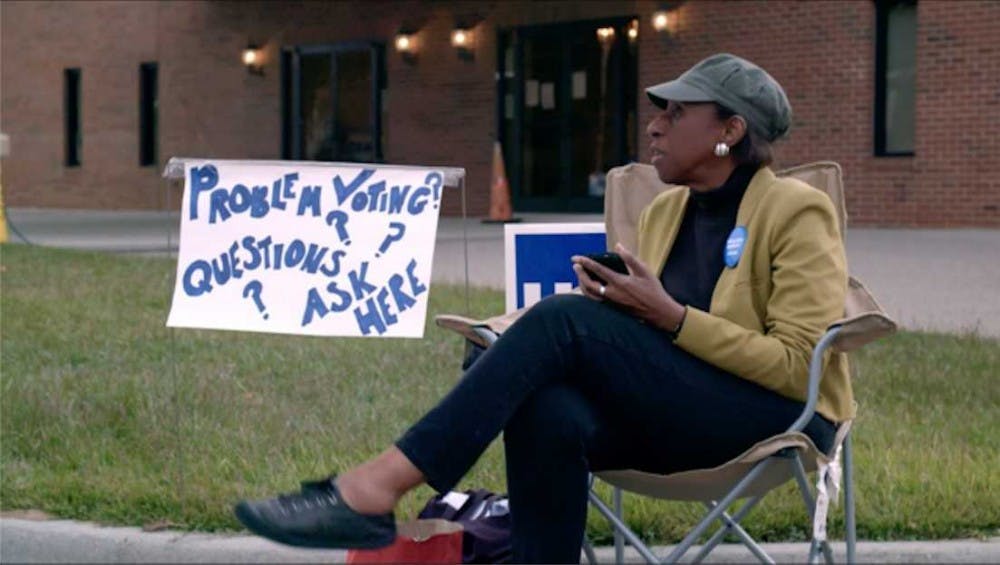Steven Miller and Laverne Berry first traveled to North Carolina to support voting rights during the 2008 presidential election. The two attorneys worked with groups at the polls to counsel voters encountering problems with voting on what to do next.
The documentary “Capturing the Flag,” featuring Berry and Miller alongside their friend, Claire Wright debuted at the Full Frame Documentary Film Festival in Durham on April 8. It tells the story of how they worked for voter protection in Fayetteville during the 2016 election.
Miller said he hoped the film, directed by Anne de Mare, could inspire viewers to want to help preserve voting rights in the state.
“In the film you see each of us at different precincts addressing different people that are running into problems and helping them when they get turned away,” Miller said. “Even if you just help one person vote who’s being obstructed, that’s making a difference.”
Irving L. Joyner, an attorney and spokesperson for the NAACP who was featured in the film, said one major barrier to voting in North Carolina is the removal of voters from registration rolls by state and county boards of elections.
“We have an ongoing lawsuit pending in the federal courts which is challenging three counties that have had a history of purging voters from the rolls,” he said. “We are attempting to get that expanded to cover all 100 counties in the state.”
In "Capturing the Flag," many of the volunteers encountered voters who had been removed from the voting rolls. Many of these voters were asked to fill out provisional ballots, but only about a third of provisional ballots are counted, Miller allegedly.
Miller said voters can be removed from the polls even if they are still eligible because of a North Carolina law that allows any individual to challenge someone’s registration. If a card is sent to someone’s address and then returned to sender, they are removed from the polls.
“One woman who was in her 90s and had been voting her entire life was purged because she gets all her mail at a P.O. Box,” Miller said. “The card was sent to her street address, and she was removed from the polls without anyone attempting to send something to her post office box. There were probably a lot of people who voted by absentee who didn’t know they were purged and their votes weren’t even counted.”



